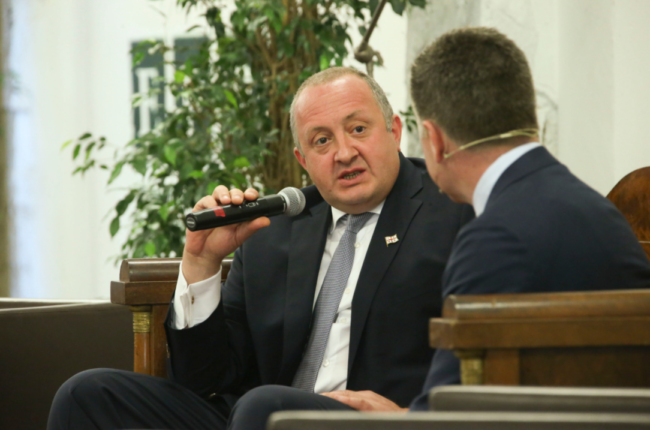
 Georgian President Giorgi Margvelashvili has called for more tolerance towards queer people in Georgia, as well as for religious, and ethnic minorities.
Georgian President Giorgi Margvelashvili has called for more tolerance towards queer people in Georgia, as well as for religious, and ethnic minorities.
Margvelashvili made the comments in a speech on 12 September at the Tbilisi International Conference — A World in Flux: The Future of Democracy, Transatlantic Relations, Europe, and the Middle East. The president argued that this is necessary for Georgia to ‘grow from an individual freedom based, human values based European culture into a European state’.
The president said that throughout the country’s history it had always been a part of the Western world, as its values had always relied on individualism, freedom, and the right of an individual to express oneself in society.
The president said it was time for Georgia to learn to accept different ideologies and to become tolerant towards ‘different people’.
‘Differences have been existing before, the difference in religion, the difference in ethnicity. Georgia is a culture where [we’ve been] able to embrace them in a unified Georgia historically, but now we are dealing with other differences, another kind of differences and we have to learn to accept them. This is not only difference in religion, but this is difference in thinking. This is not only difference in ethnicity but also difference of the choice of the sexual identity’, the president said.
He said that Georgian identity couldn’t possibly exist without these differences, arguing that it is important to accept that ‘different people are also a part of this culture’.
‘If we don’t celebrate them, if we don’t give them possibility to flourish and develop, if we restrain them, it will be [the] collapse of our nation’, said Margvelashvili.
Margvelashvili was critical of what he termed Russian propaganda as trying to spread misconceptions about the West, including that becoming more ‘European’ would destroy traditions. He said this was aimed at fostering intolerance of ‘different religions, different ways of life and attitudes’.




 14 September 2017
14 September 2017


